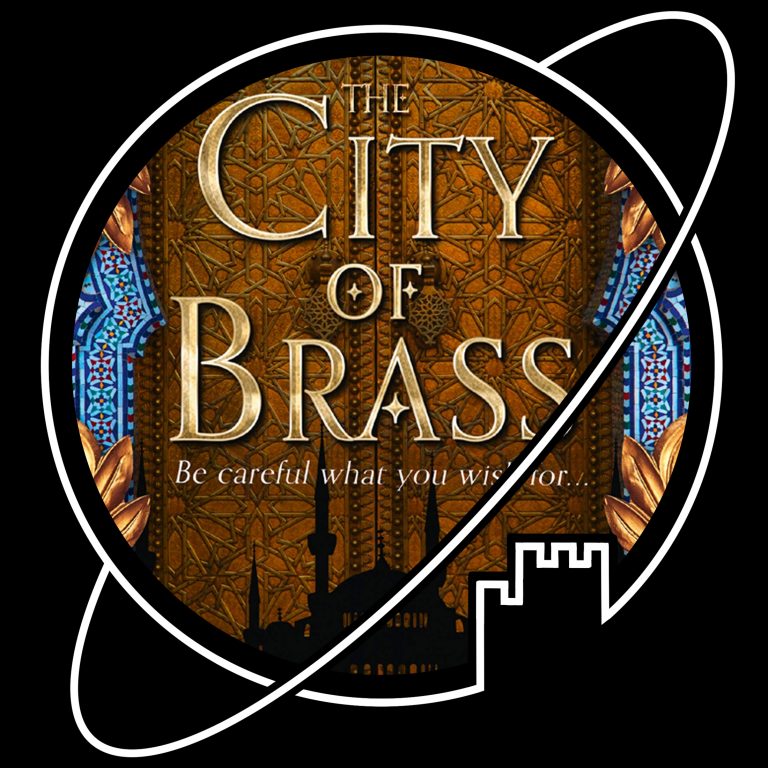- Book written by S.A. Chakraborty
- Published 14 November 2017
- Part 1 in the Daevabad Trilogy
Nahri, a shrewd young woman who grew up in the poor streets of Cairo, aspiring to be a professional healer, is unexpectedly plucked from her human life and ends up in an unknown world of magic and supernatural jinn. Meanwhile, Ali, a young jinn prince, finds himself in the midst of the political tensions of the royal capital, where he must choose between loyalty to his family or his own values.


The City of Brass was a refreshing read for me, one I quite enjoyed.
This book has very solid characters. This applies to both of the protagonists, as well as all of the supporting characters. They are all well-developed and clearly play the protagonist in their own stories, even though we only follow the perspective of Nahri and Ali.
As for the plot, this is clearly the first book of the trilogy. Many mysteries are introduced and remain unresolved by the end of this book, serving as a set-up for what is yet to come. The plot follows the protagonists closely. Every choice they make, has its consequences. Despite several action sequences, most of the suspense comes from the political schemes that are plotted, some clearly visible, others in the background.
The world of The City of Brass offers an intriguing fantasy setting, based on old-Islamic and Zoroastrian cultures and interwoven with the ambiance of the stories from ‘One Thousand and One Nights’. As someone who has studied the history and religions of these cultures, I recognise (and appreciate) the research that underlies the worldbuilding of this book. However, the lore can be somewhat overwhelming at times.
I can really recommend The City of Brass to all fantasy-lovers. Especially the ones that are looking for a diversion from the more common medieval Western-European fantasy settings. The quality of the sequels is sublime, so all I can say is that this trilogy is worth the investment.

Listened to the Audiobook with Soneela Nankani (who was not my favourite narrator but not actively annoying once sped up little bit). I know I am in the minority amongst the reviewers on this site, but City of Brass didn’t really click for me. To me, City of Brass is a book with a great setting but a mediocre story. In many ways, it felt a bit too much like the (admittedly very original) fantasy setting was a veneer smeared over what was effectively more of a modern-teenage-YA-love triangle-story. The characters felt too modern-thinking, at times a bit childish, the politics a bit flat, the setting though original just a bit shallow.
I really wanted to like this book and was into it for the first few chapters, but in all honesty it dropped off very steeply for me once Nahri left Cairo. This reflects a pattern for me, where I feel that the book was at its best when it focussed on the intersections of the human and deava world. Overall, it strikes me that Charkraborty’s style would fit a more light-hearted story a whole lot better.
People around me are telling me to give the later books a chance since they address some of the issues, so I might come back to this review later. Until then, I would recommend this book only to people who either don’t mind a bit of puberty in their storytelling or who are desperate for an original setting.
The Daevabad Trilogy is one of my all-time favourite fantasy series and as a whole I definitely give it five stars. I’m sure I will even add it to the collection at some point! The characters are absolutely fantastic and the worldbuilding is some of my favourite ever. It is clearly very well-researched and full of fascinating references to Islamic mythology. I am already looking forward to doing a re-read of the entire series soon! I also really love the way the audiobooks are performed by Soneela Nankani.
However, this first book is not the strongest of the three in my opinion, and so I give it ‘only’ four stars. I still really enjoyed it, but does contain a lot of set-up which only starts to pay off in the two sequels. In order to understand the political situation in Deavabad you will have to learn a lot of different names of the tribes and families and the way they are connected, which can definitely feel a bit confusing or daunting. However, I really recommend making the effort because it will be worth it when you get to the later books.
Definitely give this book a try if you are a fan of character-driven stories. And if you like the first book, be assured that it only gets better from there!





